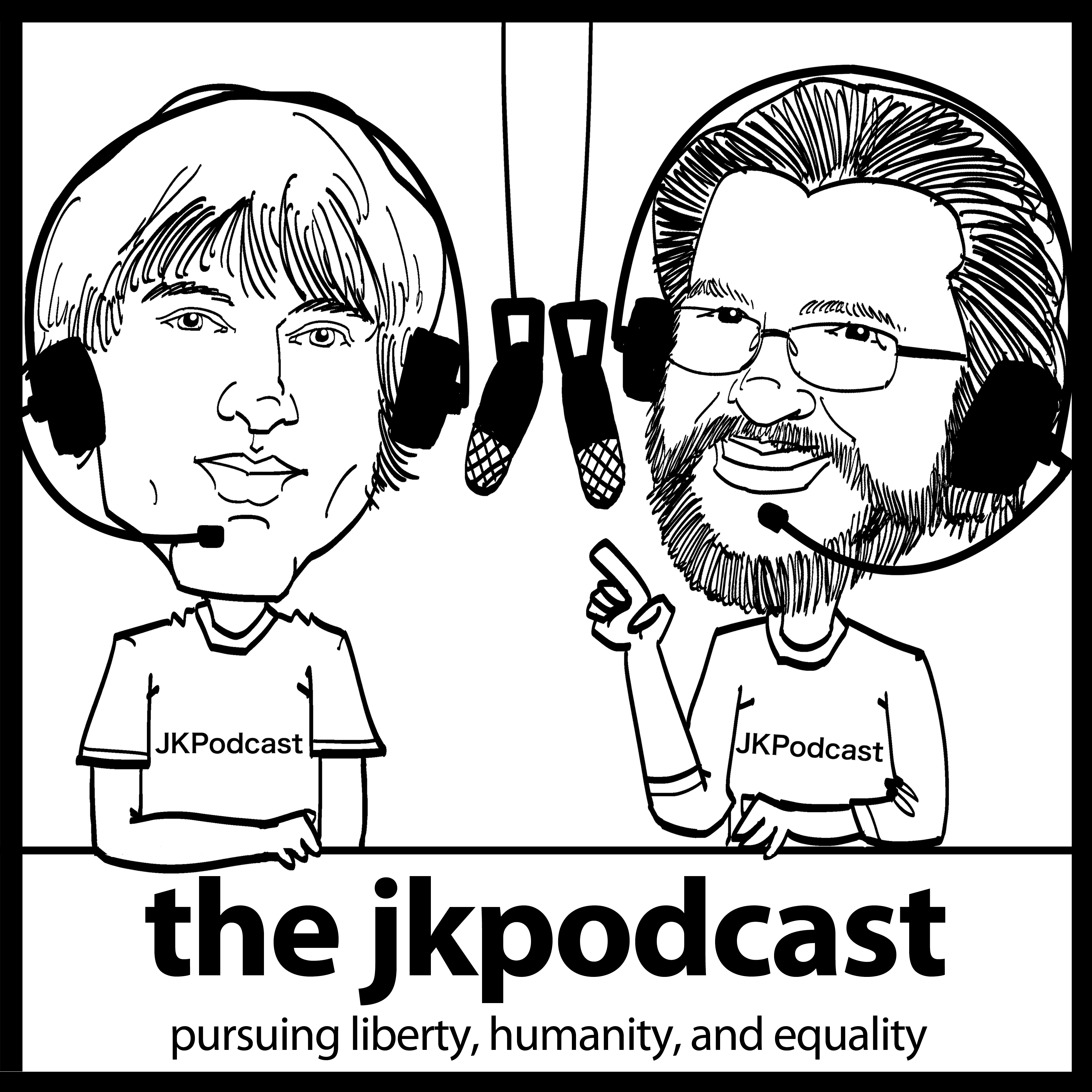Ep13 : Do People Prefer Being Slaves Part I

b'In our very first two-part episode, Jad and Kevin discuss the idea of whether or not people prefer being slaves. The idea is pretty simple: there\'s an almost endless supply of examples illustrating how people appear to be passive when any type of control structure takes over their lives. This can be applied to government, religion, education, and of course the literal notion of slavery as well.\\n\\nIn this first segment we explore the gist of the idea, ponder whether the responsibilities we have towards one another in personal relationships could possibly be deemed slavery, and discuss some control structures in local government.\\n\\nMaterial from Podcast\\nMusic\\n\\nWarm Shadow by Fink\\n\\n\\nMaterial\\n\\nTravis County Appraisal District\\n\\n\\n\\n\\nTranscript of Podcast\\n\\nKevin: Hello, and welcome to another episode of the JK Podcast. For those of you just tuning in to the show, please stop by our website at www.JKPod.com, where you can find a complete episode listing of the entire show. Since the show began back in the summer of 2012, this episode marks the first time we\'ve recorded a full two-part episode - indeed a proud moment for our producers. \\n\\nJad and I begin part 1 of this two-parter discussing whether or not people actually prefer being slaves. The idea is that since most people allow themselves to pick-pocketed by governmental agencies without much outcry, perhaps it\'s just easier to live with a master than to stand up to him. It\'s a topic that we\'ve pondered in the past, but for whatever reason have continued to avoid \\n\\n- Oh, and then the - my random thought that one morning about people actually wanting to be slaves. \\n\\nJad: Yeah. I saw something just the other day, where was I - but it was interesting just because there was - somebody was thinking through this [?] said the only thing you can really conclude is that people enjoy being slaves, and I was like, "God dammit", that\'s like the third time, the third place I\'ve seen that proposition - I\'m sure it\'s a pretty common one. But in the last month or so - \\n\\nKevin: I mean, I\'d be the last person who inherently believes that, it was just kind of one of those you know, that\'s just where the logic led me one day. \\n\\nJad: Yeah, it\'s the data. \\n\\nKevin: I\'ve kind of exhausted all other outlets.\\n\\nJad: Yeah. \\n\\nKevin: Even after we introduced the idea of the topic, we still couldn\'t quite decide whether or not to run with it. \\n\\nWell, we probably shouldn\'t do the people prefer to be slaves thing because - well, I don\'t know, maybe we should do that sometimes since, I think you\'ve got some pretty strong anti-views to it. I don\'t really have a pro-view necessarily, just kind of a [?] points to say, "well, why do people do this, and why do they do this, and why do they do this", because all of those lead to that direction. \\n\\nJad: Yeah, yeah. It is a model that matches the fact that everyone is voluntarily enslaving themselves. \\n\\nKevin: Right. \\n\\nAnd with that, our curiosities peaked and we took on the topic. Presenting some counterpoints to the idea is the co-creator of the show, Jad Davis, I\'m Kevin Ludlow, and welcome back to our show. \\n\\nJad: My only counterpoint that I could come up with was essentially that most people think they\'re free. They see freedom as an ideal state. They understand that it\'s good, and they think they\'ve achieved it. They don\'t think that - the fact that they have to give up their paycheck to the government means that they\'re a slave, you know what I mean? \\n\\nKevin: Right. \\n\\nJad: So they definitely want that body to be controlling their life in some manner - they vote for it at least you know, or [?] - but it\'s almost always a vote to control somebody else, you know? It\'s a vote to take money from that guy because he sucks. I guess if they had the objective view of their position - the people around them, the people that rule them - then their question would be now that you know, how do you feel,'